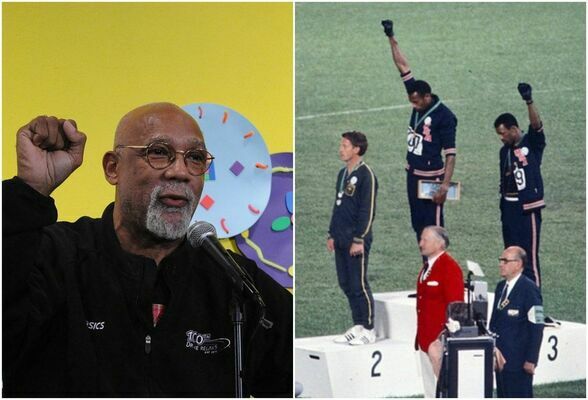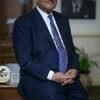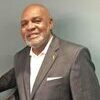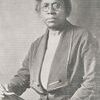Legendary Olympian And Activist John Carlos Talks Simone Biles, Sha’Carri Richardson And How America Needs A Reckoning
 John Carlos
John Carlos
John Carlos and Tommie Smith made history in 1968 when they raised clenched, gloved, Black fists while accepting their bronze and gold medals, respectively, at the summer Olympics in Mexico City. It was just months after the assassination of Martin Luther King, Jr., and the United States was still reeling from violence and racial hatred.
Decades before Colin Kaepernick kneeled, Carlos and Smith’s raised fists following their 200-meter sprint finals were meant as a sign of solidarity to the plight of Black people and the poor.
If Carlos had his way, he would have boycotted the Olympics altogether. But he didn’t want to let the track and field team down. So he planned the silent protest that became a seminal moment in history—the iconic photograph broadcast across black-and-white TVs, radio announcers recapped the event, newspaper columnists opined about it, and millions of people viewed the coverage worldwide.
Immediately after the protest, Carlos and Smith were booed. They began receiving death threats. They were given 48 hours to leave Mexico, and the International Olympic Committee (IOC) tried to come for their medals. But what hurt Carlos the most was the abandonment he received from people he loved.
Carlos reminisced on it all during a phone interview with BLACK ENTERPRISE, where he talked about making history, the backlash, the current Olympic games, what he’s doing these days, and how he doesn’t regret a thing.
BE: What was life like for you after the 1968 Olympics?
Carlos: It was like somebody took the rainbow out the sky, so to speak. I didn’t lose hope, but hope looked like it lost me in terms of so many people walked away from me. They understood why I did what I did. They walked away because there were reprisals for associating with me. Fear is a tremendous thing.
We were very young and had families. If I had saved any money as a young individual … if there was any money in the bank, instantaneously, it went away. When I came home, I didn’t have any employment anymore. I was a student at the time and had a part-time job, too. That job was just supplemental income that I was getting in my scholarship fund to take care of the family. Now there was no job.
I had to go and take security jobs and put security uniforms on, and I had to bear that knowing that I could do better, but yet, I felt like I had to do what I had to do. I didn’t want to get into street life (although I ended up doing that, too).
I had death threats. My resolve was, if they had taken my life, they could never take back what I’ve done and what I stand for.
BE: Was it worth it?
Carlos: By far, it was worth it. I would hate to think of where we would be today, in terms of we thought we progressed and we have regressed. Think about where we would be had that demonstration not taken place. It brought respect amongst ourselves, and we let people know that there was a dragon or a boogeyman out there. This was not a myth. This was not make-believe. There are haters out there, and they hate you because of the color of your skin or your religion or sexual preference.
The protest wasn’t about Black power. It was about humanity. It was about how man treats his fellow man.
BE: Was the protest planned, or was it spontaneous?
Carlos: It wasn’t spontaneous. We (Carlos and Smith) had the premise that we were going to come together and make a statement collectively by boycotting the Olympic games. Yet still, it was important to educate ourselves in order to be in a position to educate our teammates. Once we did that, we wanted to take a vote as a team to see if we should boycott. Some of them said they told their pastor from church or their community that they would bring back a medal. We couldn’t take that away from them. We had no right to demand that they back out of the games.
But when they voted to go, quite naturally, I wasn’t happy about it. I made the decision that I wasn’t going to go. I was going to stay home. But then I thought, ‘if you do, are they gonna represent?’ And I decided I’m gonna go and make a statement there.
I told Mr. Smith I wanted to make a statement. He said, “I’m with you.”
We had images that we wanted to represent—no shoes represented poverty. Black socks represented Black poverty.
(Norman) He was right there with us. But let me just say this—they (IOC) never took our medals away. I told them I didn’t break any laws of the land. I told them, ‘you didn’t give it to me; I earned it.’ They backed away when I made that statement to them, but they put that propaganda out there for people to believe they took our medals. I think a lot of people believe they did. It was all a PR campaign.
They never took our medals. You have to understand the medal count down (between countries)—it’s political. They say it’s not, but we got to beat Russia. We got to beat China…
They gave us a gold medal that’s not gold. At the end of the day, when all is said and done, I go home with a medal, but who goes home with the proceeds from the ticket sales, the TV ads? As athletes, you’re supposed to sit there and be humble because they let you be an Olympian.
BE: What is life like for you now?
Carlos: We have a Black-owned company: Black Paradigm and Black DNA, under the auspices of ActivelyBlack.com. I have a line I’ve come out with—ActivelyBlack—to celebrate my 50-year history. This is very educational for kids.
I also speak on quite a lot of issues. I travel when it’s permissible. Right now, it’s up and down. I just got on a plane the week before last, so I’m gradually getting back out there.
I have a Dr. John W. Carlos Foundation. We give scholarships to the kids in college and also scholarships in terms of financial support to homeless people.
BE: We’re now in the final week of the Olympics. Have there been any highlights for you? Have there been any letdowns?
Carlos: The highlight would have to be Ms. Sydney McLaughlin, who won the hurdles. The greatest highlight would be that young fellow (Karsten) Warholm from Sweden that ran the world record in intermediate hurdles. He’s the one that smashed the world record. It was incredible what he did. He would be equivalent to what Bob Beamon did in 1968 in terms of—Bob was a long jumper—the record was 27 feet, and Bob jumped to 29 feet.
Relative to the Olympics itself, I saw two things that appealed to me – it appears that the rest of the world has really risen to the fact that we can get a lot of miles with track and field, putting our best foot forward. Now you’re starting to see the development of what they’re doing. It’s amazing that if you look to other parts of the world, see Italy found a young Black man that represents the country, and he wins. Sit back and think about the German young lady that ran the long jump. She is Black, and she wins.
I’m sure when they start to develop this (track and field) industry, I’m sure a lot of them will be more respected.
The third thing, which is probably the most important, is that with the exception of a few athletes, it seemed like we didn’t have a focus on what we were there for. They didn’t realize we were there to do a job. It was a lot of distractions in these young individuals’ minds, and it just goes to show to the US Track and Field Federation and Olympic Committee: you need to roll up your sleeves and get busy.
BE: What did you think of Simone Biles’ decision to exit the gymnastics competition and later to rejoin for balance beam?
Carlos: People don’t understand the amount of pressure that goes on. Now, I’m an armchair Olympian, sitting in my living room. You’re gonna make some statement about what her mental state is; plus, do you know what it takes? It’s absurd that this continues to go on.
The only gymnastics that most people do is step off the curb and onto the sidewalk. They don’t know what it takes to do the triple twists that she’s doing. If you’re in the wrong state of mind, you could kill yourself. You could break your neck. For them to try and penalize her and scold her and make her less of a superstar than she is based on their ignorance is absurd.
It took a lot for someone like Simone Biles, the best gymnast in the world, to say I’m going to back up because I can hurt myself. I’m not in the right mind. Simone just won. She’s like Rosa Parks on that bus. I admire her for being strong enough to make the right choice for her.
BE: What are your feelings about the Sha’Carri Richardson situation?
Carlos: Unfortunately, they have a rule that, in my estimation, is outdated based on the fact that for half of the nation, marijuana is acceptable for many reasons. That rule has to be abolished. On the other hand, I understand she knew about the rule, and she knew what she was doing.
I have all the respect in the world for her. Many individuals make an excuse. This young lady didn’t make no excuses. She said I smoked a blunt. She didn’t try and run from it or hide from it.
Without a doubt, it was a setback for America. But at the same time, she is respectful, she stepped back, and I have to applaud her for that. Economically, I think that’s going to be a boost for her. She will have an opportunity to run against those individuals from Jamaica.
BE: Any thoughts on silver medalist Raven Saunders’ (a U.S. shot putter) decision to cross her arms in an X above her head in terms of violating the Olympic protest ban? What do you think of that policy?
Carlos: They wouldn’t know what the X was unless she explained to them what it was. She has the right to protest for gay rights. That’s her right, and I support that right.
BE: How far do you think we as a nation have come from when you protested? In your estimation, how far do we still need to go?
Carlos: Well, we’ve got to go a lot farther than where we are. We haven’t gotten to reconcile with each other yet. How are you going to reconcile when you have one race of people who have enslaved so many other people and there’s no closure to it? If I was to go out and kill somebody and they catch up with me, they would want me to say what I did and to have remorse for what I did. How can we have compassion or remorse if no one wants to sit at the table to discuss it?
Everyone should have some representation at the table. First of all, to white people today, we don’t believe that you created racism. What we do believe is opposed to you putting water on the fire, you threw logs on the fire and perpetuated it all these years.
Are you saddened by what you did? We are leaders for the rest of the world. We need to act like it.
BE: Any final thoughts?
Carlos: I just like to say that society needs to reinstate the word love. Love yourself so you can show love to your kids and others, too. Love is on the downswing, and hate is on the upswing.
People running around killing people in the car ‘cause he passed you. Everybody is on edge. We need to practice more love.
Please support The Community Times by subscribing today!
You may also like:







